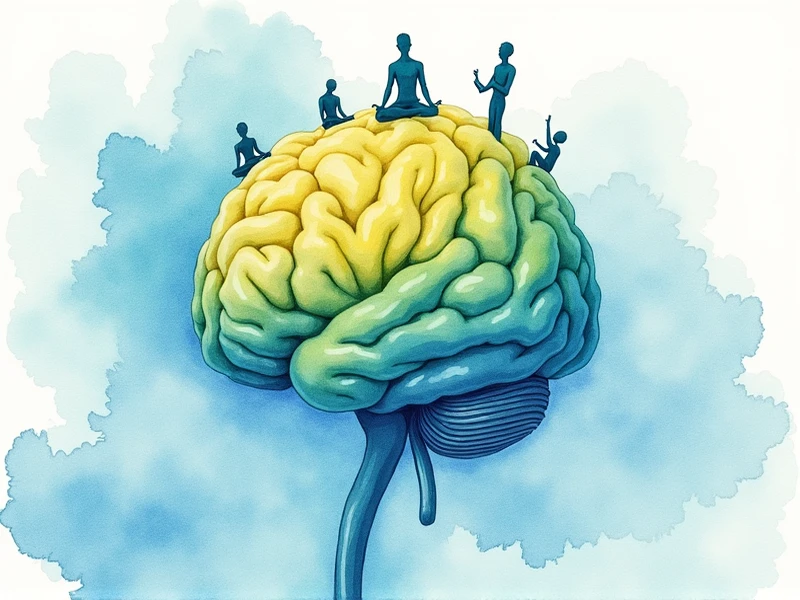Mindfulness Based CBT for Depression: A Comprehensive Guide

Depression affects millions, making daily life a struggle for many. Amid the diverse treatments available, mindfulness based CBT for depression has emerged as a transformative approach, blending Cognitive Behavioral Therapy (CBT) with mindfulness practices to create long-lasting mental health improvements. In this guide, we’ll explore how this innovative therapy works, actionable techniques to try, and the benefits it offers. Let’s dive in and empower your journey to mental wellness.
Understanding Mindfulness Based Cognitive Behavioral Therapy (MB-CBT)
What is MB-CBT? A Definition
Mindfulness-Based Cognitive Behavioral Therapy (MB-CBT) is a therapeutic approach that combines the problem-solving methods of CBT with the meditative practices of mindfulness. CBT focuses on identifying and changing destructive thought patterns, while mindfulness encourages a nonjudgmental awareness of the present moment. When combined, these practices help individuals manage depression and anxiety with greater insight and emotional resilience.
The Core Principles of MB-CBT
The foundation of MB-CBT lies in two main principles: recognizing negative thought patterns and developing mindfulness skills. Clients are encouraged to observe their thoughts non-judgmentally, which reduces emotional reactivity. By addressing thoughts, emotions, and behaviors simultaneously, mindfulness based CBT techniques work holistically to support mental health.

How MB-CBT Differs from Traditional CBT
While traditional CBT focuses on restructuring irrational thoughts, MB-CBT takes it a step further by integrating mindfulness. The mindfulness component fosters self-acceptance and emotional regulation, helping patients respond to circumstances with calmness rather than reacting impulsively.
Mindfulness CBT Exercises and Techniques for Depression
Mindfulness Meditation for Depression Relief
Mindfulness meditation is one of the cornerstones of MB-CBT. Practicing meditation involves sitting quietly and focusing on the present moment—whether through your breath, bodily sensations, or even sounds in your environment. This method not only reduces anxiety but also nurtures emotional clarity crucial for overcoming depressive thoughts.
Breathing Exercises for Calming the Mind
Breathing exercises are simple yet highly effective mindfulness based cbt exercises that anyone can practice. One popular technique is the “4-7-8 Breath,” where you inhale for four seconds, hold for seven seconds, and exhale for eight. This activates the relaxation response, calming your mind and reducing the physical symptoms of stress.
Body Scan Meditation for Increased Awareness
Body scan meditation involves paying detailed attention to each part of your body, from head to toe, while consciously relaxing tense areas. This practice enhances awareness, cultivates self-compassion, and builds a stronger connection between the mind and body.
Gratitude Journaling: Cultivating Positivity
Another practical tool is gratitude journaling. Writing down three things you’re grateful for daily shifts the focus from negative thought patterns to positive aspects of life. It’s a simple yet powerful mindfulness cbt exercise that reinforces optimism and boosts emotional well-being.
Implementing Mindfulness Based CBT Techniques Effectively
Finding a Qualified MB-CBT Therapist
Quality therapy begins with finding an experienced professional well-versed in MB-CBT. A skilled therapist can guide you through personalized techniques, ensuring the practices are tailored to your unique challenges. Make sure to research credentials and choose therapy clinics with positive reviews.
Integrating Mindfulness CBT Exercises into Daily Life
MB-CBT isn’t reserved just for therapy sessions—it works best when incorporated into daily routines. Start by dedicating 10–15 minutes every day to mindful practices, such as meditation or deep breathing. Over time, these cbt mindfulness exercises can enhance your emotional resilience and combat depressive symptoms.
Resources: Books and Online Programs for MB-CBT
Books on mindfulness and cognitive behavioral therapy offer educational insights and DIY strategies. Titles like Mindfulness for Stress Management by Robert Shaker provide effective exercises for cultivating calmness. Don’t forget online mindfulness courses and apps, which make learning accessible and interactive.
Explore BrainTalking’s guide on managing anxiety with mindfulness for dummies to further expand your knowledge.
Benefits of Mindfulness Based CBT for Depression
Reduced Symptoms of Depression and Anxiety
One of the standout advantages of MB-CBT is its ability to alleviate both depression and anxiety simultaneously. By addressing negative thought patterns and fostering mindfulness, people often experience reduced emotional distress and fewer depressive episodes.
Improved Emotional Regulation
Practicing MB-CBT empowers individuals to regulate their emotions more effectively. Feeling overwhelmed can lead to negative spirals, but mindfulness trains your brain to pause and respond thoughtfully rather than reacting impulsively.
Increased Self-Awareness and Acceptance
Self-awareness is a powerful tool for combatting depression. Through MB-CBT, individuals learn to observe their inner thought processes. Over time, this strengthens emotional intelligence and promotes self-acceptance—key ingredients to healing.
Enhanced Coping Skills
MB-CBT equips individuals with sustainable coping mechanisms that go beyond managing depressive symptoms. Tools like gratitude journaling or breathing exercises ensure you’re prepared to navigate life’s usual stresses.
Practical Mindfulness CBT Exercises to Start Today
Guided Meditation for Beginners
If you’re starting out, opt for guided meditations that walk you through the process step-by-step. There are countless apps and online resources providing free or paid meditation guidance tailored to various needs.
Mindful Breathing Techniques for Stress Reduction
Take time to practice deep breathing techniques whenever stress arises. This simple exercise requires no additional tools or space, making it one of the most accessible mindfulness based cbt techniques for stress relief.
Daily Gratitude Practice
End each day with gratitude journaling. Write down reflections like “What went well today?” or “What am I grateful for about myself?” These small efforts add up, rewiring your brain for positivity.
Additional Resources for Mindfulness Based CBT
Recommended Reading on Mindfulness and CBT
Books such as The Stress-Proof Brain by Melanie Greenberg or Rewire Your Anxious Brain by Katherine M. Pittman provide critical insights into using mindfulness and CBT practices effectively.
Online Mindfulness Courses and Apps
Digital platforms like Headspace and Calm offer courses and guided practices to integrate mindfulness-based CBT exercises into your routine. Explore programs tailored specifically for depression to maximize effectiveness.
Support Groups and Communities
Joining a mindfulness support group can foster encouragement and accountability. BrainTalking offers accessible resources on MB-CBT, including tips for managing anxiety with mindfulness for dummies.
Takeaways: Actionable Steps for Starting MB-CBT

- Dedicate 10 minutes daily to mindfulness meditation.
- Practice deep breathing whenever stress or anxious thoughts arise.
- Start a gratitude journal to counter negative thought patterns.
- Review mindfulness-based CBT books to increase your knowledge of techniques.
- Experiment with apps or guided programs to solidify your practices.
FAQs
Q: Can I use mindfulness-based CBT exercises on my own without a therapist?
Absolutely. While a qualified therapist can enhance your experience, many MB-CBT exercises can be self-practiced. Techniques like mindfulness meditation, deep breathing, and gratitude journaling are beginner-friendly and effective when done regularly.
Q: How rapidly can I notice improvements with MB-CBT?
Progress varies by individual. Some may notice reduced stress or improved emotional regulation within weeks of consistent practice, while deeper mental health improvements may take months. The key is persistence and integrating these exercises into daily life.




